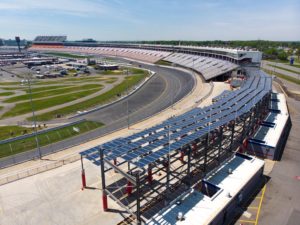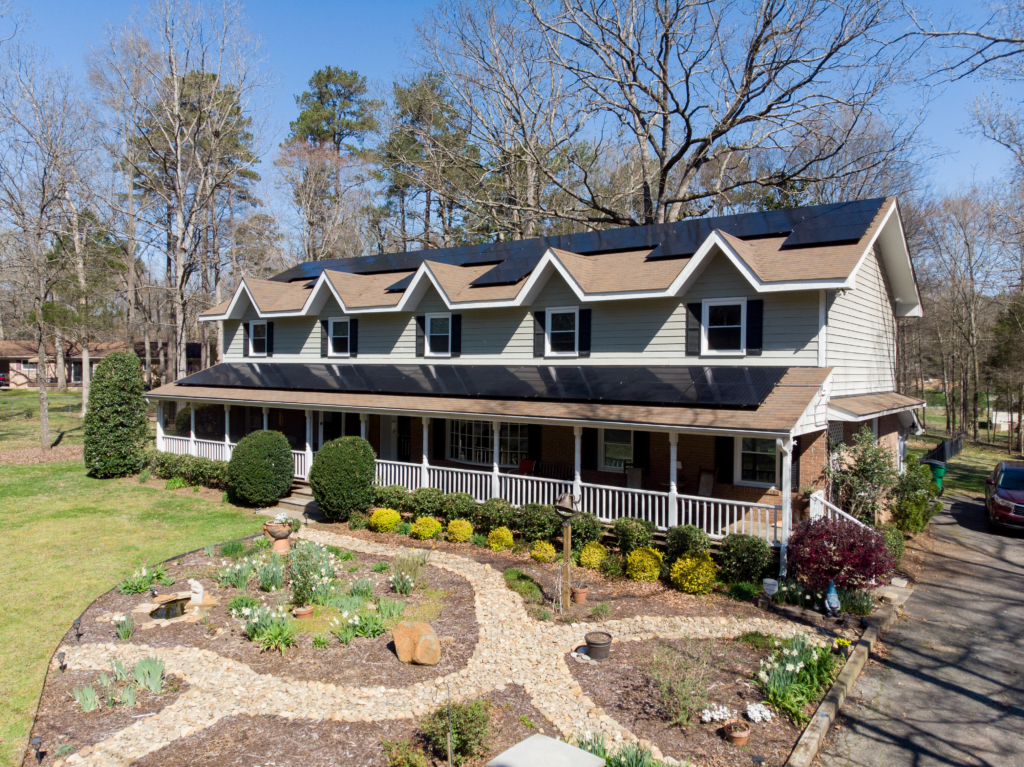Charlotte Motor Speedway
Charlotte Motor Speedway
The Charlotte Motor Speedway Miles Ahead of the 2021 Solar Tax Credit Reduction!
The Charlotte Motor Speedway‘s partnership with Renu Energy Solutions is a 42,000-square-foot solar deck. The Turn 4 Sun Deck is powered by 773 photovoltaic modules (solar panels) that produce more than 315,075-kilowatt-hours a year, reducing energy costs by $25,000 annually.
This solar investment not only saves money but demonstrates Charlotte Motor Speedway’s long-term commitment to the local community and their environmental stewardship. The Turn 4 Sun Deck offers racing fans a wide array of entertainment, food and lodging options while allowing CMS to significantly reduce its carbon footprint with solar power.
Commercial solar energy systems are available for businesses of every size, and we’re ready to help you on your path toward powering your facility with renewable solar power.
From pharmacies to breweries, warehouses to animal hospitals, preschools to offices, farms to garden centers, even large industrial complexes – we have shown diverse commercial customers the benefits of solar and delivered solutions that work.



Frequently Asked Questions About Solar:
How exactly does going solar and a solar system itself work?
How many solar panels do I need for my home?
Roof-size/available space: When we look at the size of your roof and the space available, we gather data that tell us the maximum number of solar panels your home or site can hold and we even consider shading. We use a software “Suneye” which takes a 360 picture of your roof and we use this photo to determine if your home is a good candidate for solar.
Energy Usage: When we determine energy usage we look at your past electrical bills from over the course of a year to make sure your system isn’t too big or too small.
Your Budget: We take your budget seriously and most importantly, we want you to be satisfied with our services. We take your feedback on how much you want to spend so that we can size your system appropriately.
What is solar net-metering?
Does Duke Energy offer net-metering?
Curious about the cost of a home solar system?
Ready to Own Your Own Energy?
Speak to Us Today!
